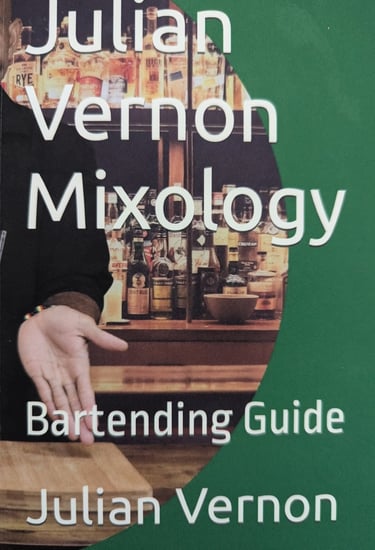Vodka Guide: History, Production, Tasting Notes, and 5 Essential Cocktails
A complete vodka guide from base grains to glass—learn how vodka is made, how to taste and buy it, plus classic recipes (Martini, Mule, Bloody Mary, and more) and easy DIY infusions.
Julian Vernon
8/13/20253 min read
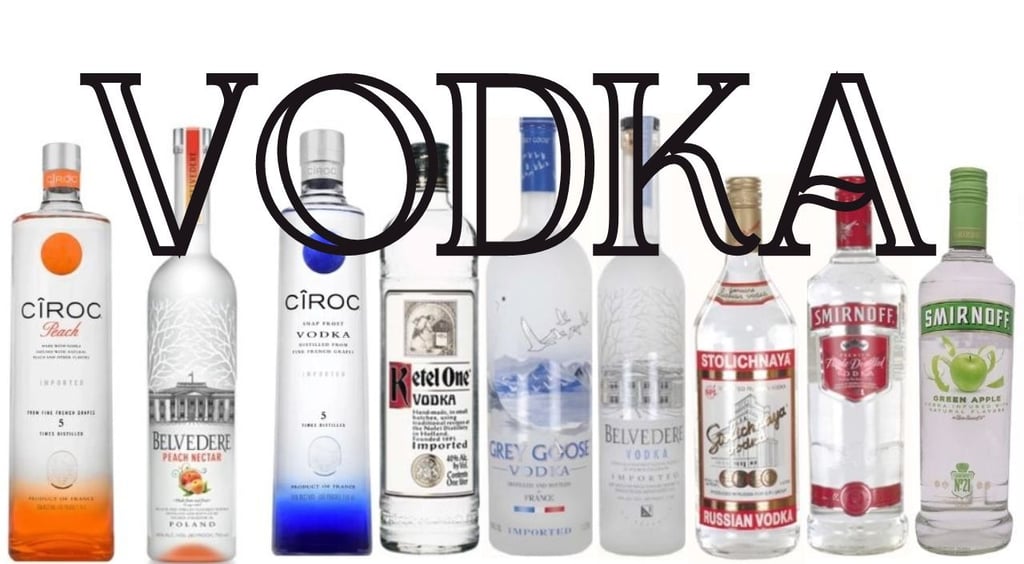

Vodka: A Clear Spirit With Endless Possibilities
By Julian Vernon | Cocktail A to Z
What Is Vodka?
Vodka is the world’s best-selling clear spirit—clean, versatile, and endlessly adaptable. Whether it’s the backbone of a bracing Martini or the sparkle in a breezy highball, vodka’s neutral profile makes it a blank canvas for creativity.
Despite its reputation for being “flavorless,” high-quality vodkas reveal subtle grain, fruit, or mineral notes, along with distinct textures—from silky to crisp.
📜 A Quick History
Vodka’s roots run deep in Eastern Europe, with Poland and Russia both claiming its origin. Written records date back to the 1400s–1500s, when early vodkas were often flavored and medicinal.
By the 20th century, vodka had transformed into a global icon, marketed as “colorless, odorless, tasteless”—a perfect fit for Western cocktails like the Vodka Martini, Cape Codder, and Screwdriver.
How Vodka Is Made (And Why It Matters)
1. Base Material
Wheat – Silky, light, faint sweetness
Rye – Peppery, spicy edge
Potato – Creamy, weighty mouthfeel
Corn – Soft, slightly sweet
Grape – Floral, fruit-hinted finish
2. Fermentation
Yeast converts sugars to alcohol. Clean, cool ferments help achieve a neutral profile with fewer congeners.
3. Distillation
Most vodkas are distilled to 190+ proof in column stills, sometimes finished in pot stills for added character.
4. Filtration & Proofing
Charcoal or quartz filters polish the spirit. Water—often spring or distilled—is added to reach bottling strength. Water quality affects texture more than you’d expect.
Style Guide: Unflavored vs. Flavored vs. Infused
Unflavored (“classic”) – Ideal for Martinis, highballs, and spirit-forward drinks.
Flavored – Citrus, berry, vanilla, pepper; added post-distillation.
Infused – Real botanicals steeped in vodka (e.g., jalapeño, pineapple, coffee).
How To Taste Vodka Like a Pro
Chill lightly (45–55°F)—not frozen.
Nose gently: Look for grain, citrus, pepper, or minerality.
Sip and feel: Texture matters—silky vs. crisp, oily vs. lean.
Add a drop of water to open faint aromatics.
🛒 Buying Guide: Choosing the Right Bottle
Use matters:
Martini / sipping – Look for “single-estate,” “non-charcoal-filtered,” or “small-batch” vodkas.
Mixing – Crisp, clean mid-shelf options.
Infusions – Affordable, neutral base.
Label clues:
Base material = mouthfeel hint
Filtration method = texture nuance
ABV = 40% standard; higher proof adds backbone
Budget tiers:
Value – Batch cocktails, infusions
Mid-shelf – Everyday mixing
Premium – Martini nights, gifting
Storing & Serving
Storage – Room temp, away from sunlight
Pre-service chill – 1–2 hours in freezer
Glassware – Tulip or cordial for neat pours; coupe for cocktails
Classic Vodka Cocktails (Bar-Ready Recipes)
1. Vodka Martini (Dry)
2½ oz vodka
½ oz dry vermouth
Dash orange bitters (optional)
Garnish: Lemon twist or olive
Stir with ice, strain into coupe
2. Moscow Mule
2 oz vodka
½ oz lime juice
Top with ginger beer
Garnish: Lime wheel, mint
Build in copper mug over ice
3. Bloody Mary
1½ oz vodka
3 oz tomato juice
½ oz lemon juice
Worcestershire, hot sauce, spices4.
Garnish: Celery, lemon, olives
Roll with ice, strain into fresh ice
4. Vodka Collins
2 oz vodka
¾ oz lemon juice
¾ oz simple syrup
Top with club soda
Garnish: Lemon wheel, cherry
Shake, strain, top with soda
5. Espresso Martini
1½ oz vodka
1 oz espresso
½–¾ oz coffee liqueur
¼–½ oz simple syrup
Garnish: Three coffee beans
Shake hard, fine-strain into coupe
DIY Vodka Infusions (3 Easy Winners)
Pineapple Vodka – 500g pineapple + 750ml vodka; 5–7 days
Jalapeño Vodka – 1–2 jalapeños + 750ml vodka; 6–24 hours
Citrus Peel Vodka – Mixed peels + 750ml vodka; 3–5 days
Pro Tip: Label jar date, taste daily, fine-strain through coffee filter.
Myths, Busted
“All vodkas taste the same.” → False. Base material and water matter.
“Good vodka must be flavorless.” → Not always. Texture and subtle notes count.
“More filtrations = better.” → Over-filtration can strip character.
Food Pairings
Briny & fresh – Oysters, smoked salmon, pickled veg
Creamy & rich – Potato pancakes, caviar, pierogi
Spicy & bright – Ceviche, Korean cucumbers, wasabi peas
Quick FAQ
Is vodka gluten-free? Yes—distillation removes gluten proteins.
Does freezing ruin vodka? No—it thickens texture, softens aroma.
How long does an open bottle last? Indefinitely if sealed and stored cool/dark.


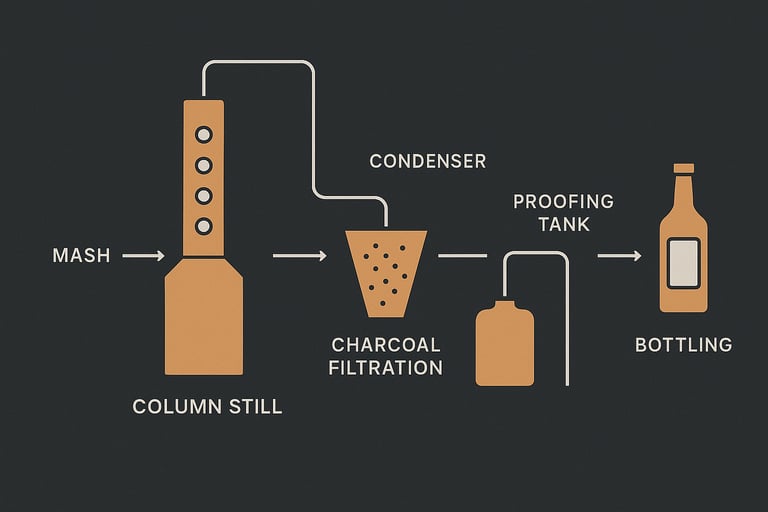

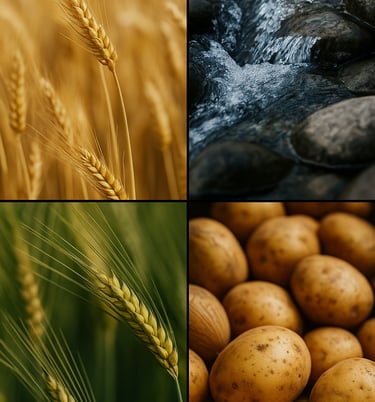

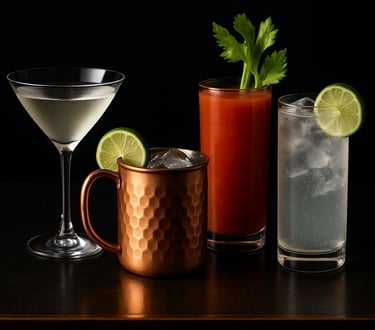

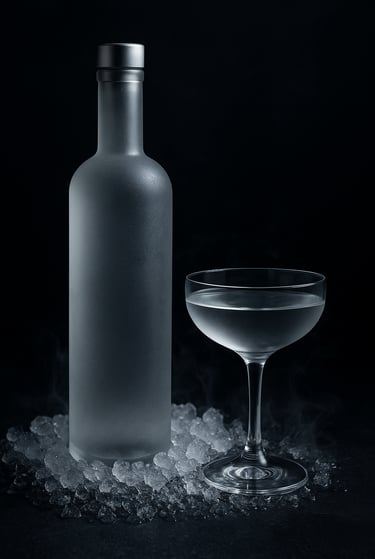

Enthusiasts
© 2024. All rights reserved.
